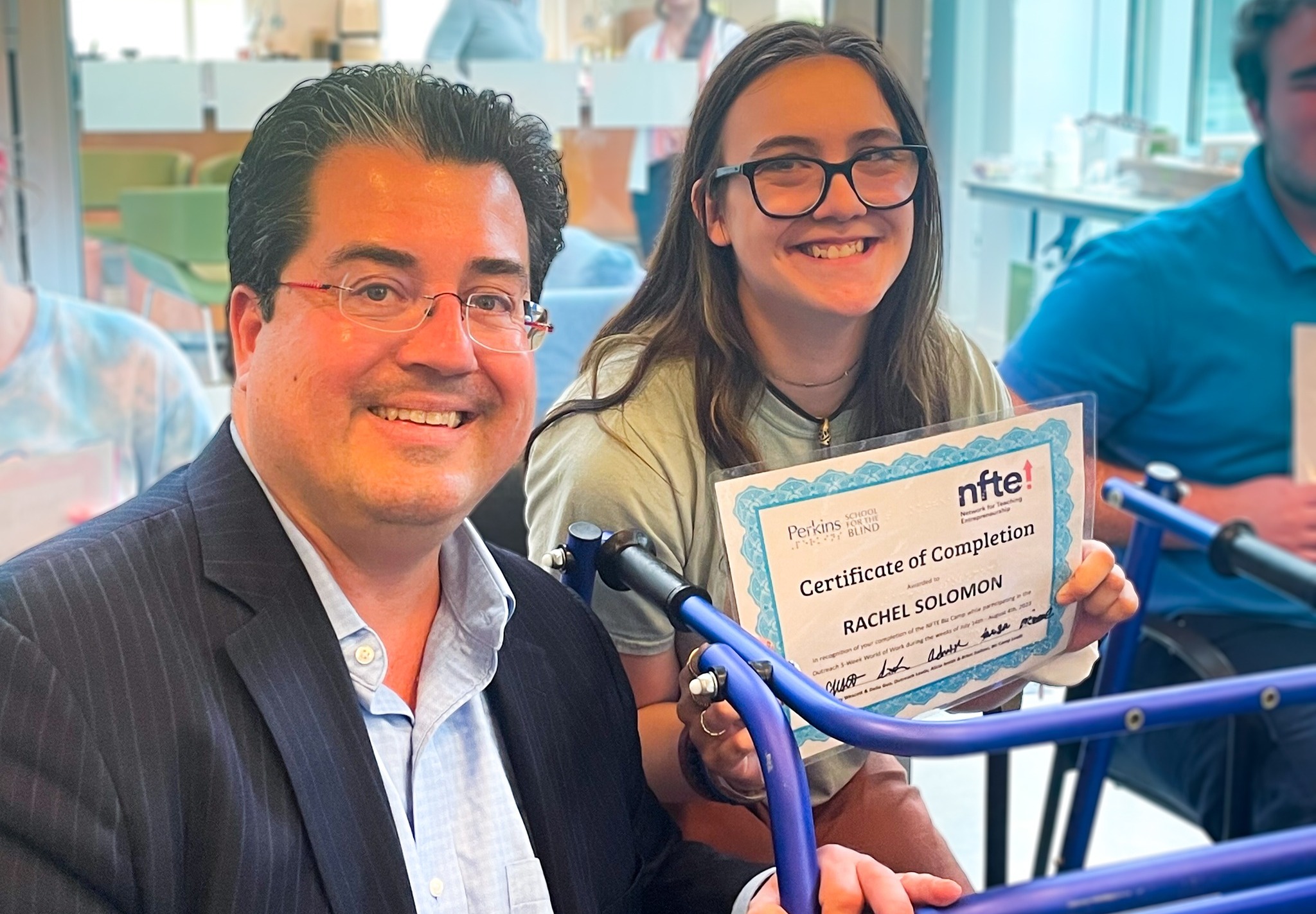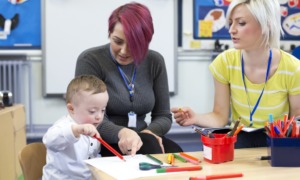Rachel Solomon, an 18-year-old with cerebral palsy and epilepsy, has faced a frustrating challenge over the years: the wheels on the walkers she depends on for mobility frequently malfunction, which literally stops her in her tracks.
There was that time Solomon was on stage during a dance recital when the wheels conked out, and that other time when she was on the basketball cheer team and the wheels froze mid-cheer.
“When the wheels break, I can’t do what everybody else is doing,” Solomon said. “I have to sit down; I can’t really do anything.”
Solomon heard from other classmates who had similar issues with their walkers and so she decided to devise an entrepreneurial solution to the problem by launching a wheel subscription service.
Last summer, Solomon attended BizCamp, a five-week entrepreneur camp for children with disabilities at the Perkins School for the Blind in Massachusetts. BizCamp is a long-running out-of-school time program designed by the business education nonprofit Network for Teaching Entrepreneurship, but this was the first time the program focused exclusively on young people with disabilities.
Solomon won first place in the program finale’s pitchfest event, a sort of kid-friendly version of Shark Tank. And this month, the network announced she was the winner of their Inclusive Innovator Award.
J.D. LaRock, CEO of Network for Teaching Entrepreneurship, said the decision to bring the curriculum to youth with disabilities came out of a conversation last spring with one of their philanthropic supporters.
LaRock said that Network for Teaching Entrepreneurship’s mission since 1986 has been “rooted in serving not just students from economically disadvantaged circumstances, but also students with disabilities.”
[Related: Tim Blaylock named Network for Teaching Entrepreneurship West Region executive director]
The program teaches students how to develop a business idea and create a plan for how they bring the idea to fruition. Depending on the exact program, which is held in schools across the country, winners receive cash prizes, consult with business experts and have the opportunity to attend or present in a national entrepreneur contest.
As the winner, Solomon gets access to a Hasbro consultant to help with prototyping as well as funding for a trip to New York City this October where she will be representing her school, Chelmsford High School, in an expo at the National Youth Entrepreneurship Challenge.
Solomon is an active teenager who uses a walker as an extension of her legs. All that weight and activity quickly wears away the wheels, causing the wheel lock to break, rendering the walker unable to go backward and making it completely useless, Solomon said.
At BizCamp, she discovered the wheel problem was much more common among her peers than she imagined and that it also extended to wheelchairs. She named her company Quick Change and plans to deliver the wheels directly to homes.
At the core of the problem, according to Solomon, is that every walker brand she has used does not offer replacement parts. Instead, she would have to get a new walker, which can cost upwards of $200. Though the walkers sometimes are covered by insurance, Solomon said it can take 6 months to get one, so her family opts to buy them online out-of-pocket.
Solomon says some people who use walkers can’t afford to completely replace them for a broken wheel and that is why she says she decided on a delivery subscription model that sends wheels directly to customers’ homes at a frequency of their choosing. Customers will also be able to purchase all-terrain wheels for going uphills and on the beach, Solomon said.
Alena Sison, a graphic model maker at Hasbro, said the next steps are to find a prototype wheel and test it out. But that can be costly to design, mold and produce from scratch. Instead, Sison suggested Solomon begin with a business website and then search for wheels that already exist in another use and see if she can repurpose them for her prototype.
“Maybe there’s a type of plastic that only skaters use or another sport that uses wheels that are high impact and won’t break in three months,” Sison said.
Solomon, who graduated high school at the end of the last school year, is ready to ride the momentum and follow an entrepreneurial path. Already, she envisions moving beyond only wheels to one day designing her own line of walkers and wheelchairs.
“I think this could be really good business and help a lot of kids and a lot of families — and I really hope it does,” Solomon said.
***
Brian Rinker is a Pennsylvania-based journalist who covers public health, child welfare, digital health, startups and venture capital.
***
This story was updated on Oct. 12, 2023 to add new information from the Network for Teaching Entrepreneurship on Rachel Solomon being named the winner of the Inclusive Innovator Award.






























